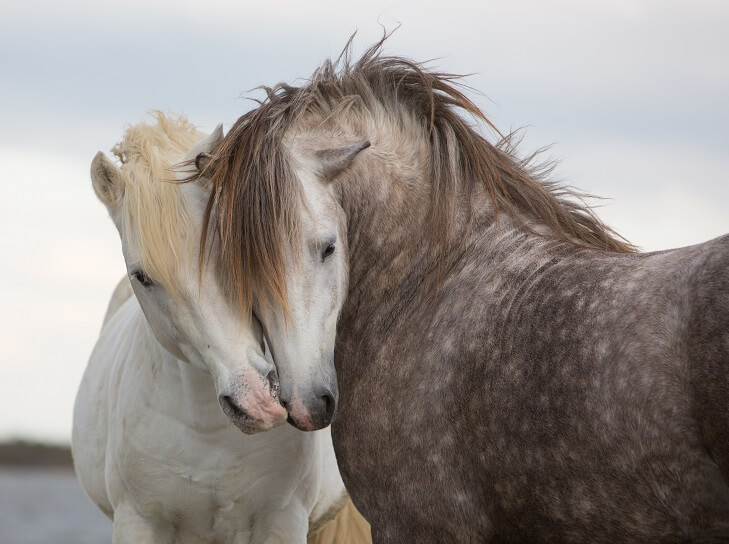Horse Barn Plans: Contemplating Horse Boarding?
Here are Some Key Considerations Before You Take the Leap

It has been just over a year since we bought our farm and embarked upon the joyful, hilarious, anxiety-ridden, sweat-inducing, but ultimately rewarding journey of horse care at our own place. While I’ve been a horse-owner for over 20 years, barn management is a humbling experience for any savvy equestrian. Add a boarder to the mix and every day proves to be a learning experience. While Google can be my best friend, it is not without its limitations. For example, try having Google ascertain whether your woodchips have an odor “resembling cinnamon bread pudding” to rule out inclusion of toxic black walnut wood (stay tuned for a future blog post for more on that story!). As I take stock of this past year, I thought I would share key lessons learned that might help farm-owners that are contemplating taking on boarders. Even experienced managers may benefit– nothing like some fresh perspective from a newbie!
- Who Does What? Clearly establish the delineation of responsibilities between boarder and farm owner in terms of care and cost. This includes decisions you as the farm owner are permitted to make in the event of a health issue, no matter how routine. You may know the boarder’s preferred protocol for something like colic or laminitis, but what about a minor cut or fungus? Under what circumstances do you have authorization to give certain medications such as Banamine or Ace? In the event you cannot reach the owner, to what lengths in terms of expense can the vet go to treat the horse?
- The Outside World: Make sure the boarder is aware of your worldview on turnout. Are horses brought inside for thunderstorms? Rain or snow? Sub-zero temperatures? In addition, ask what kind of fencing the horse is accustomed to. For example, my horse is very respectful of deactivated electric fencing tape, but we quickly discovered the hard way that our new boarder needed more secure borders.
- The more you know, the better: Be sure to get a comprehensive understanding of the horse’s background. This does not just mean medical history; ask lots of questions about how the horse has been accustomed to living. For example, a show horse who spent the vast majority of its life indoors in a large box stall may not adjust well to 24/7 turnout with a run-in shed. Similarly, a horse that has always been turned out alone may not have a keen sense of how to navigate the herd hierarchy in group turnout. Another key consideration (which I learned the hard way): has the horse been frequently moved from home to home? Has it recently been turned out with an abusive horse? These experiences can cause the horse to adopt fear-coping behaviors or tendencies that may or may not make it the right fit for your farm. Given the ability for a new horse to alter the dynamic on your farm, it’s helpful to know as much as possible ahead of time to make an informed decision.
- Trials & Tribulations: Consider establishing a trial period. This is a concept familiar to us equine enthusiasts when purchasing a new horse, but I’ve rarely seen it as commonplace for boarding. However, this can establish a drama-free and seamless way to determine whether this is the right fit for both the horse owner and the farm.
- The Honest Answer: Be honest with yourself about your pet peeves and establish clear-cut ground rules on your property. Do you like privacy? Establish operating hours for boarders to visit. If you avoid providing detailed and thorough policies ahead of time, it may create unnecessary tension as you learn the hard way that certain boarder habits aggravate you.
- Put it in Writing: Sign a legal agreement with the horse owner, no matter how informal the relationship. You may think that a boarding agreement is only necessary for a commercial boarding facility, but it’s important to have a legally-binding document in place even for a simple companion arrangement to protect you in the event of potential misunderstandings and mishaps. As described in this insightful article by Sue Weaver on boarding horses on a hobby farm, the agreement should provide equine identification and boarder contact information, stipulate what fees are included in the price of board and what is extra, define roles and responsibilities for you and the horse owner, and include a release of liability. Stable Select offers an attorney-drafted boarding contract and customizable care form to make the process simpler and inexpensive!
Adding new four-legged friends to your farm can be great fun. You can provide companionship to your own horse, earn some extra income, and minimize mowing and have a never-ending supply of garden fertilizer. Nevertheless, it can present its own set of challenges. But with proper advanced planning and clear and frequent communication with your boarder, it can be well worth the while.






